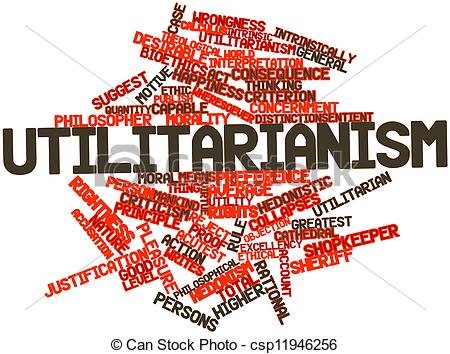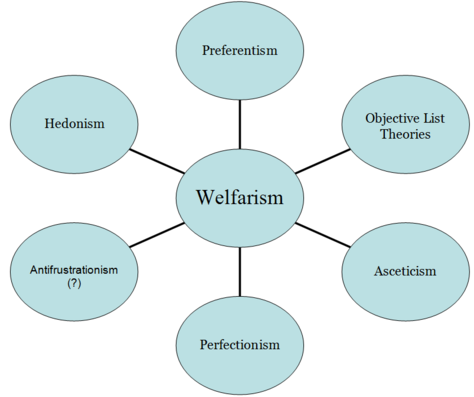Individual welfare has been taken by utilitarianism as subject of ethical thought

Image Source
There are numerous types of utilitarianism, they differ about how welfare is to be evaluated, and about different inquiries whether, it is the individual act that ought to be advocated in terms of augmenting welfare, or institution. Every one of the variations concede to conglomerating welfare, including somehow the welfare of the considerable number of people included.
These starting representations give some thought of how they may prompt diverse outcomes. One distinction lies in the constituency of morality as it is most normally characterized by the speculations that those with whom the system is in the first place concerned. The regular constituency for contractualism comprises of those to whom you could possibly attempt to legitimize your actions, in the least difficult understanding, other moral agents.
This can be reached out to a worry for the interests of other people who can't give or get defenses, for example, little children or the mentally disabled. In such cases we normally consider trustees acting for those individuals' benefit.
By a further expansion, animals may likewise get thought, yet they are more distant far from the essential constituency. We would anticipate that contractualism will give an account of worry for animals that is not the same as that given of moral relations between individuals. The possibility of a contract, even in this negligible and schematic frame, dependably gets as its first concern measure up to relations between agents who are both the subjects and the objects of moral thought.

Image Source
Utilitarianism looks in an alternate course. A standout amongst the most normal translations of the welfare with which it is concerned is pleasure and the nonattendance of pain, and the regular utilitarian constituency comprises of all animals equipped for feeling pleasure and pain.
This premise has been refined by present day work, and the constituency is currently prone to be characterized in terms of the individuals who have needs, and can experience the ill effects of the dissatisfaction of those needs. This still incorporates animals in the essential constituency. In fact, it incorporates a few animals more normally than a few humans.
This origination advances to one moral inspiration, kindness. In the meantime, it presents a divergence between moral agents, from one perspective, and recipients of morality on the other, the second class being, ideal from the earliest starting point, bigger than the first. This element of utilitarianism originates from its welfarism. It has another essential component, which originates from its being a sort of consequentialism and judging actions in terms of their outcomes.

Image Source
Any type of consequentialism finds ethical esteem at last in states of undertakings. This has the outcome that, for utilitarianism, organization comes in just secondarily, our fundamental ethical connection to the world, as agents, is that of being the reason for attractive or unwanted states of undertakings. Our fundamental ethical concern is to achieve it that there is more welfare or utility on the planet instead of less, and, in the easiest adaptation of utilitarianism, we ought to just act in the most proficient approach to realize that.
It is an issue of what causal levers are right then and there inside reach. Once in a while the causal associations through which influence results gone through other individuals' actions, yet this has no embellishment. It is only a question of what changes create generally welfare.
This implies there are states of issues influence regarding welfare which end up being the worry when, on non-utilitarian suppositions, they would be another person's worry. In addition, in light of the fact that the class of recipients is bigger than that of agents, there are circumstances that end up being somebody's worry when on non-utilitarian presumptions they would have been nobody's worry.

Image Source
References:
https://en.wikipedia.org/wiki/Utilitarianism
http://www.uio.no/studier/emner/sv/oekonomi/ECON1220/h05/deadweight.pdf
http://www1.cmc.edu/pages/faculty/jkreines/Wood%20hegel%20emptiness%20of%20the%20moral%20law.pdf
Individual's welfare sir @juvyjabian should take the first place. I agree with you... happy Sunday to you and family... God bless
Downvoting a post can decrease pending rewards and make it less visible. Common reasons:
Submit
True! it is....and to achieve that there is more welfare or utility on the planet instead of less, though not the easiest thing to do, we ought to act on it as the most proficient approach to materialize it.
This is a very sensible post @juvyjavian...thanks for this.
Downvoting a post can decrease pending rewards and make it less visible. Common reasons:
Submit